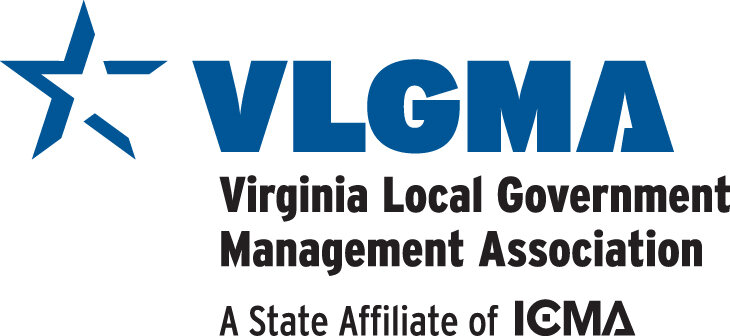May 2021 Community Conversations
“Broadband Access in Rural Virginia”
Authored by Matthew C. Hankins, ICMA-CM, Assistant County Administrator, County of Wythe
When I served as a General Assembly legislative aide in the mid-90s, localities in Southwest Virginia banded together for an annual legislative reception. Nice dinner, open bar to attract more legislators and staff, and speeches from legislators and local mayors and board chairs over dessert.
At the 1996 dinner, after a day in which our legislators had again left transportation funding revisions off the table, Russell County’s at-large supervisor and board chair rose to voice an unusual and unforgettable request.
“Last year, the state (VDOT) accidentally put 180 feet of four-lane highway in Russell County,” he said. “We’d like to ask you to have them take it back out.”
Laughter ensued. Not gut-busting laughter, but sympathetic chuckling from frustrated elected leaders and professional administrators who know how absurd some long-term problems are to fix when the solutions seem so close.
The supervisor pointed to transportation access as equity. At that time, rural Russell, Dickenson County and Lee all lacked four-lane highways and had limited access to the nearest major highways – limited economic growth, health care access and modernization. That has changed over time, paving new four-lanes even as explosive growth in urban Virginia ate transportation dollars by the dump truck load. Meanwhile, the General Assembly waited another generation to address transportation funding.
Transportation equity means we all have a reasonable opportunity to reach a major highway within a reasonable amount of time in order to travel and attract visitors, get goods to and from market, and ensure a safe community.
Fast-forward 25 years, and there’s 180 feet of fiber optic backhaul cable in Wythe County.
Like transportation, broadband access is an equity issue, particularly for rural Virginia.
Last summer, my eldest daughter and son-in-law built a new townhome in Durham, NC. They’re on the edge of an industrial district, very near an Amazon distribution center, other Fortune 100 corporations and major universities. They currently pay less than $40 per month for 400 Mbps of home Internet service. On a bad day of heavy use, they might top out at 350 Mbps. I’m sure many of my urban Virginia colleagues have similar availability.
When employers in rural Virginia communities go out to seek employees, where will those employees want to live – where copper-line DSL promises 10 Mbps but likely gives them an unstreamable 2 Mbps of service, or where fiber-fueled broadband is better measured in percentages of gigabytes?
As the Covid-19 pandemic pushed schools to virtual learning, teachers and students in rural communities struggled to stay connected. Last spring, a teacher friend in Franklin County set up at our church because she has no broadband access – no fiber passing the house, no home cell phone access, no access to satellite providers.
I know and have met teachers and students alike who drove to their schools for wi-fi access or to a “neighborhood” hotspot set up by the school system to do assignments. Imagine hours every evening in a cramped car doing homework in a McDonald’s parking lot, with parents and siblings all trying to work or study.
Federal and state action took steps to reduce the inequities of lack of broadband access. CARES Act, the American Rescue Plan and expanded state funding for broadband access all are intended to help – but are simultaneously inflating the market.
In Wythe County, we used CARES Act funding to study broadband access as the first step in a public-private partnership to expand broadband access through a fixed-wireless broadband solution. Topography and low population density make fiber-to-the home impractical and expensive, so fixed wireless is the most direct path to rapidly expand broadband access to county residents. We’ll be applying with a designated private partner for VATI grant funding in the summer round.
Our community and Board of Supervisors have been driving this process. Our study used a county-wide survey direct mailed to every door. Residents and businesses could respond via mail or an online link on the county website and social media pages. We did news releases and interviews to encourage people to respond.
And did they respond. The consultant received responses from 18 percent of surveyed respondents – the best numbers they’ve seen in hundreds of such studies they’ve conducted throughout the nation, and certainly astronomical numbers in terms of local government engagement.
The survey data showed better than any publicly available data to determine served, underserved and unserved broadband customers. The outreach was well worth it, and is fueling an effort to meet a key Board priority.
We’re making the effort to meet a community need. Long-term, insufficient state and federal broadband investments will still leave most of rural Virginia – and rural America – behind on broadband access. Rural localities need assistance from the Commonwealth and federal governments with commitments well above the $100 million we’ll be fighting for in the next VATI round. Otherwise, the inequity will continue to grow as rural Virginia’s population continues to shrink.
It is our responsibility as public administrators to make every effort to leverage public and private dollars to the greater public good. Expanding public engagement and public lobbying efforts to attract the broadband investment rural Virginia needs will meet that obligation.
Matt Hankins is assistant county administrator in Wythe County. He’s a dad of two daughters and a son, and now a soon-to-be empty nester. Weekends frequently find him helping with his wife’s Amish furniture store, taking care of their two dogs and six cats, and mowing grass with his 1957 Massey-Ferguson TO35 tractor. He’s an advocate for use of the New River Trail, one of Virginia’s longest rail-to-trail conversions.
To discuss this concept further or ask questions contact Matt Hankins (mchankins@wytheco.org)
Have a topic for a future Community Conversations article to suggest?; please contact Cindy Mester (cmester@fallschurchva.gov)
